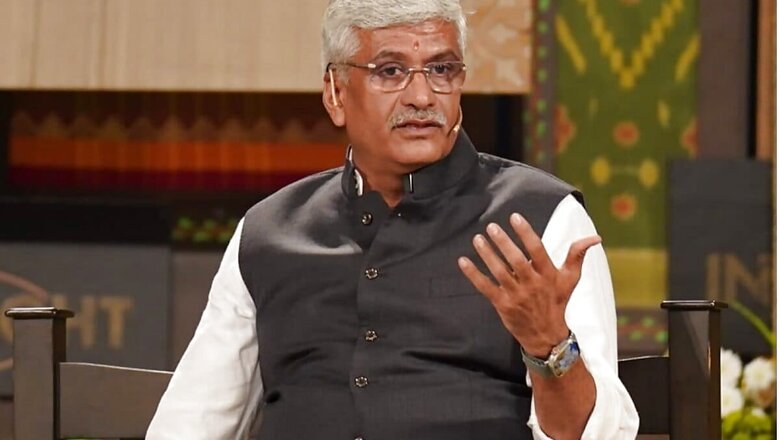
views
The President of Guyana Dr. Irfan Ali recently mentioned something that is symptomatic of India’s foreign policy and our place in the global narrative. The president waxed eloquent on India’s global vaccine policy, especially thanking Prime Minister Narendra Modi for standing up for love and hope in times when globalisation failed them. He spoke of the coronavirus crisis and how India, despite facing an once-in-a-century crisis at home, did not shy away from extending help to nations who needed it.
A year ago, Dominican President Roosevelt Skerrit said how he had no hope of receiving a swift response when he contacted for vaccines and how he was surprised by how we reacted in times of crisis. He also said that in these times, when help is extended to countries based on their size or might, India extended its arms to his small island country with a meager population of 72,000.
India’s foreign policy is peppered with such events; events that have shown India to be a caring, empathetic partner to countries, a reliable partner that always extends help that it can in times of need. The above two events are emblematic of India’s philosophy of Sewa, a concept that we borrow from our civilisational philosophies. India does not see the size or the might of the beneficiary country and neither does it expect anything in return from them, as it believes in doing ‘niswarth sewa’, a philosophy of ‘Karma Yoga’ expounded by Lord Krishna in Bhagavad Gita, “to do duty without expecting rewards or fruits of our efforts”.
India, since millenniums, always had a strong foundation of service as the societal code of this nation is stemmed in it. Not even in one instance can we find any Indian king invading other kingdoms by taking advantage of diseases and calamities in the opponent’s kingdom. In order to fully understand how this separates us from other nations with weak civilisational ethos, one must look towards Pakistan. When the 2014 flood hit Jammu & Kashmir, Prime Minister Narendra Modi wrote a letter to then Prime Minister Nawaz Sharif offering assistance to his government in any matter possible.
Both Pakistan-occupied Kashmir and our state of Jammu and Kashmir were reeling under the devastating floods, rescue operation ‘Operation Megh Rahat’ was in full swing in J&K and our army’s attention had shifted towards civilian rescue operation. The floods had destroyed 50 kilometers of border fencing and sensing an opportunity, even in times of such suffering, Pakistan initiated a new cycle of terrorist infiltrations.
In the tale of Ramayana, the only difference between Lord Ram and Ravana’s might was Ram’s character and morality. Today, Pakistan faces a bleak future due to its weak moral foundations, and India is on the path to becoming a Vishwa Guru because of our morals and character. Our neighbour-first policy is consistent, when it comes to India’s immediate neighbour, we have never seen our help as a means of establishing grandiose benevolence but as a family member reaching out to her family members.
When earthquake hit Nepal in 2015, India initiated ‘Operation Maitri’, and we dispatched 450 NDRF personnel and 43 tonnes of relief material within 6-7 hours. Today, NDRF operations are in full swing in Turkey, the country takes hostile stands against Indian interest in international forums but it does not stop us from marshaling our resources for the country without expecting anything in return.
The twin ethos of Karma and Dharma have been our polestars when it comes to servicing humanity. The crowning moment for our civilisation was undoubtedly the corona crisis. When profit-greedy capitalism failed those in needs, Pfizer arm-twisting Latin countries like Brazil and Argentina to put military bases and federal reserves as collateral to get vaccine doses, India sent 24 million vaccines to 25 countries in the same region (Brazil, El-Salvador, Nicaragua, etc) without creating as much as a whisper.
No wonder the ex-president of Brazil, Jair Bolsonaro, equated India’s help to that of Lord Hanuman carrying Gandhmardhan mountain with Sanjevani Booti. During the early phase of the coronavirus crisis, when America desperately needed hydroxychloroquine tablets, India exported 50 million of them, following which US former president Donald Trump acknowledged India’s co-operation in these extraordinary times.
India supplied 235 million vaccines to 98 countries, and we did service with absolute humility. A plethora of world leaders like WHO Director-General Tedros Adhanom Ghebreyesus, US President Joe Biden and Australian Prime Minister Anthony Albanese have called India’s efforts as extraordinary, a testimony that Democracy can deliver. We as a country are true believers of never leaving anyone in distress behind. When Yemen faced civil war, we initiated ‘Operation Rahat’ and rescued 4,640 Indian citizens along with 960 foreign nationals from 41 countries.
Similarly, when South Sudan saw such strife, we launched ‘Operation Sankat Mochan’ and rescued more than 6,000 Indians and foreigners. In recent times, during the Russian-Ukraine conflict, we through Operation Ganga rescued 25,000 Indians and 147 citizens from 18 countries.
The Modi government is rooted in the Indian civilisational beliefs, the ideas by which a country should be sculptured, be it the re-imagination of the state as Ram-Rajya or actualising the philosophy of “sarve bhavantu sukhinah sarve santu niramaya” through its Vaccine Maitri campaign. We are a country who believe that if even a namskaram if done with piety and honesty in our hearts can give instant Punya.
Indeed, India will never be able to distance itself from the suffering of the world as it mandated for us to serve to attain Punya. So, the Indian story of service will always be a story of self-discovery and enlightenment, as an end in itself rather than expecting rewards/ fruits for the same.
(The author is the Union minister of Jal Shakti)
Read all the Latest Business News here


















Comments
0 comment